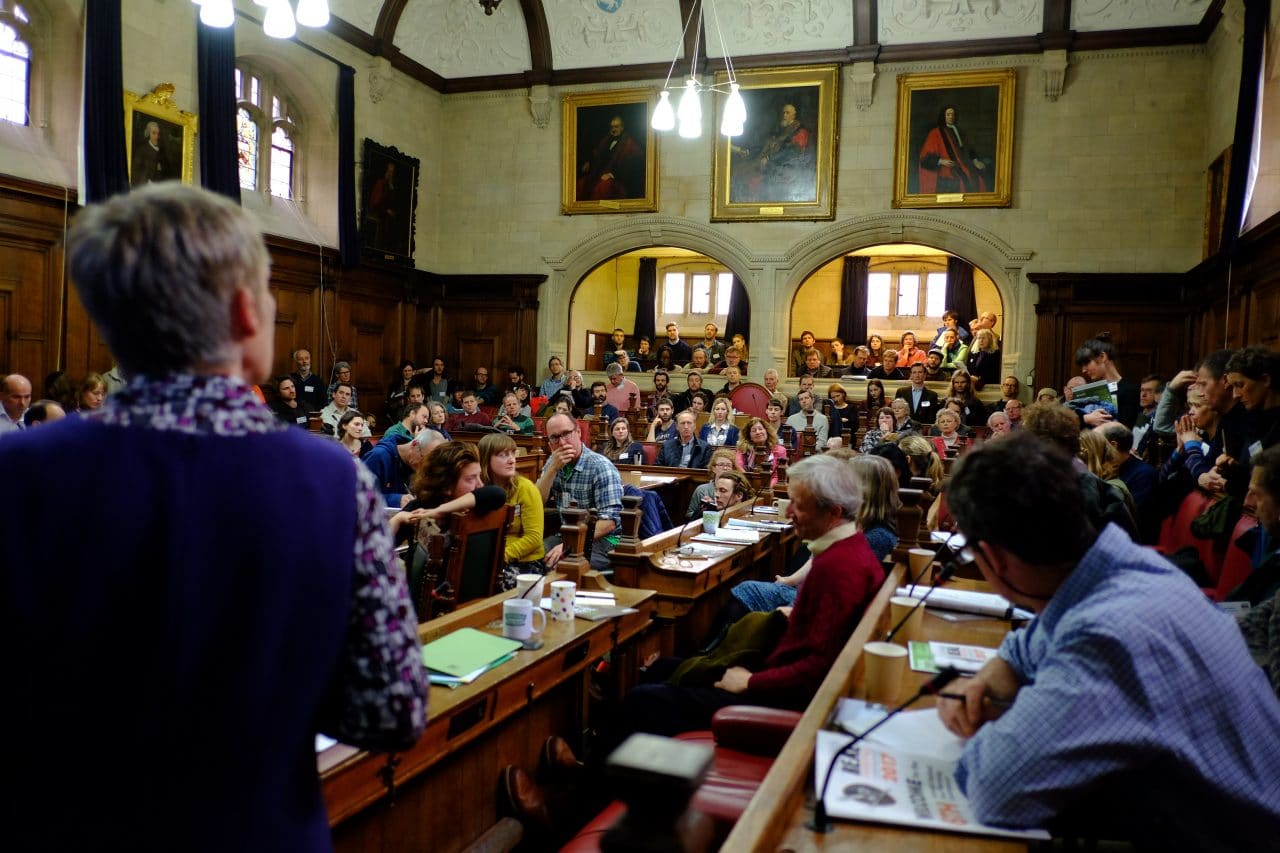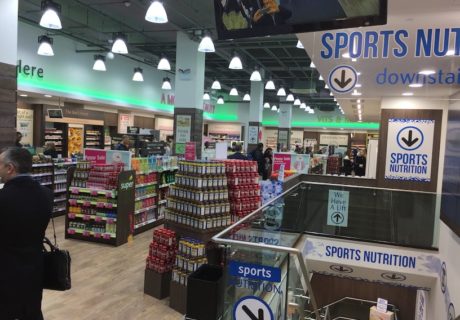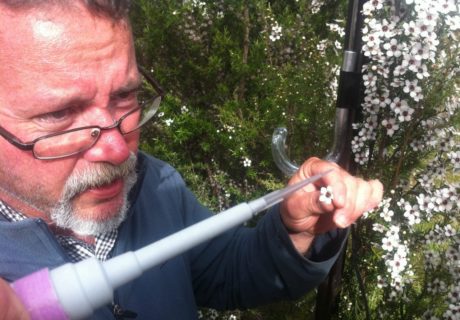Organic is gaining a voice at the annual Oxford Farming Conference, as well as at the alternative Oxford Real Farming Conference – both events took place in early January. Michael Wale reports
Guy Watson, chairman and owner of Riverford, the UK’s largest organic veg box scheme, told the Oxford Farming Conference that next year his company will become employee owned.
He was speaking in a session on ‘Feeding and Watering the City’ at the establishment farming conference, attended by conventional farmers and the agri business. Watson explained that he had been an organic veg farmer since 1987, and supplied 47,000 homes a week across the UK. He now runs two restaurants, one on his West Country farm and the other, the only Soil Association certified pub – The Duke of Cambridge in London’s Islington, which he bought when he “married the ‘landlady’ Geetie Singh” in 2014.
But Watson is no lover of restaurants whom he called “masters in deceit”. He told his audience to ask plenty of questions when the menu claimed to be organic, fresh and seasonal. “ Always ask those questions. My children say ‘don’t dad’. But my wife asks them too. I don’t supply restaurants. It’s about a connection between the fields and homes”.
Watson also said that he hated selling to supermarkets, and that his early experience with them had been the spur to launching his box scheme (enabling him to bypass the big retailers). Recalling the experience, he said: “I was told by a supermarket buyer ‘ when I tell you to jump sonny, you jump, and I tell you how high’.”
“I was told by a supermarket buyer ‘ when I tell you to jump sonny, you jump, and I tell you how high’”
In her address to the main Oxford Farming Conference the new DEFRA minister, Andrea Leadsom, gave little away on post-Brexit food and farming policy. But at a press conference afterwards she answered my question about her attitude to organic producers. She said that organic had a great role to play, and said that a trip to China had illustrated to her potential size of the market there – both because China increasingly looks for guarantees about the quality and safety of the food it imports, and as a result of experiencing several food scares of its own.
The headline speaker at the Real Farming Conference – the alternative event staged across the road – was Olivier de Schutter (pictured) , the former UN Special Rapporteur on the Right to Food. He co-chairs the International Panel of Experts on Sustainable Food Systems. A consistent supporter of small farmers, he argued that the present form of agriculture was deeply dysfunctional and was failing everyone, from farmers to the whole of society.
, the former UN Special Rapporteur on the Right to Food. He co-chairs the International Panel of Experts on Sustainable Food Systems. A consistent supporter of small farmers, he argued that the present form of agriculture was deeply dysfunctional and was failing everyone, from farmers to the whole of society.
But later, de Schutter told me that we should remain careful about some organic practies: “Organic farming can be misused and developed in a way I would call industrial. In California strawberries and vegetables are grown on vast tracts of land. That’s the extreme example of the way organic farming can go wrong.”
Now in its sixth year, the alternative Real Farming Conference is booming, and this year attracted 750 delegates each day to Oxford Town Hall. There was a large presence of organic growers and producers. Guy Watson, who spoke at both events, told me that when he had visited it he had been impressed by “the energy and beliefs there about doing things properly”.
At the same time, the main ‘establishment’ Conference does seem more open to giving organic a voice. Organic producer dairy farmer, Will Armitage, impressed delegates in a session entitled Soil Saviours that could have come right out of the Real Farming conference’s programme. Armitage said that 60% of his organic milk was turned into highest quality milk powder in France and ended up in America, in an enterprising deal put together by OMSCO.
Both conferences now supply so many interesting talking points that I personally think they should no longer clash. My suggestion? Separate them, and and run as a week long agricultural festival in Oxford, giving the organic way of life an even bigger hearing.
Photo: Michael Wale





